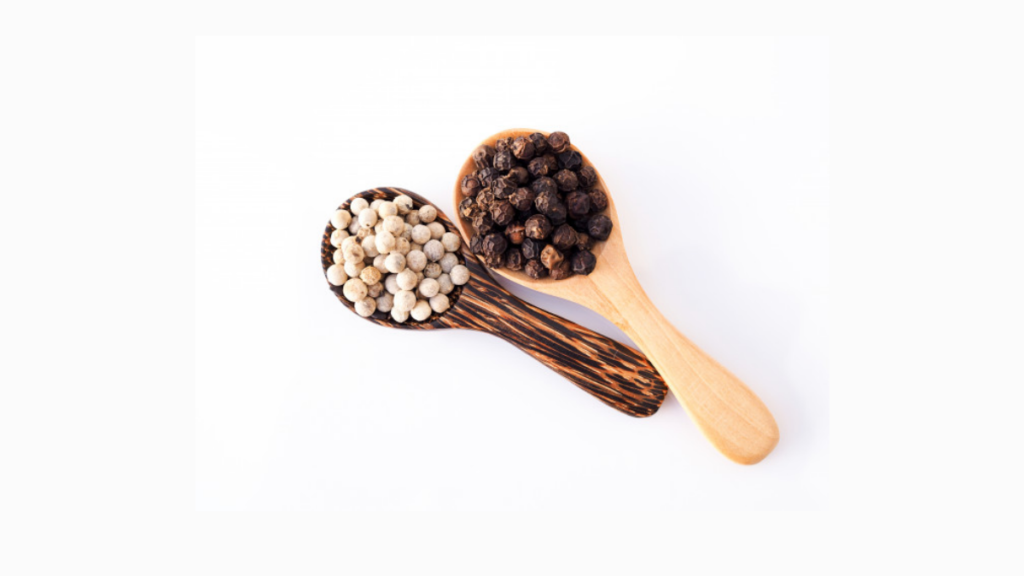The spice black pepper is one of the most widely used and traded in the world. While it is one of the few spices that almost everyone uses on a regular basis, most of us don’t think about the vast array of flavors and colors this one-of-a-kind spice can provide.
Black, white, red, and green peppercorns can all be harvested from the same pepper vine at various stages of maturity. While each hue has its own set of features, we’ll be focusing on white and black pepper today.
Picking and processing are the real distinctions between them. White pepper is made from ripe berries that have been gathered when they have a rich yellow or red color. Black peppercorns are harvested somewhat early in the ripening process and dried in the sun, causing the skin to turn black due to enzymes in the berries.
After being picked, white pepper is soaked and rubbed to remove the outer covering, revealing a smooth white underlayer. The slight fermentation that occurs as a result of the soaking process alters the flavor character.
Some defining characteristics of black pepper include:
- Harvested when turning yellowish
- While drying in the sun, enzymes in the berries cause the skin to turn black
- Most pungent, strongest flavor
- Warm spicy aroma
Some defining characteristic of white pepper include:
- Harvested when deep yellow or red
- Soaked and rubbed free of the outer skin, revealing a smooth white underlayer
- Slightly milder aroma and bite than black pepper
- Uniform color and appearance
Black and White Pepper: Taste & Use
During the manufacturing of white pepper, some of the taste characteristics that distinguish black pepper are lost. Piperine, which is largely present in the berry’s outer peel, contributes to black pepper’s unique fiery hot flavor. The outer layer of skin on white pepper is removed during processing, resulting in a milder flavor than black pepper.
While black pepper is significantly more frequent in American kitchens, white pepper’s visual appeal has made it a fixture in French, Chinese, Vietnamese, and Swedish cuisine. Creamy soups or chowders, for example, are frequent applications where a more uniform color palette is desired.
If you want to use white pepper instead of black pepper, think about how it will affect the flavor of your food. Because it has been fully ripened and fermented, white pepper is said to have a more nuanced flavor profile. White pepper has a more earthy and musty flavor than black pepper, which has a more fiery heat. White pepper is the way to go if you want the flavor of pepper without the intensity or color of black pepper. Consider buying spices in bulk so you’ll never run out of one of the most popular spices in the world.

